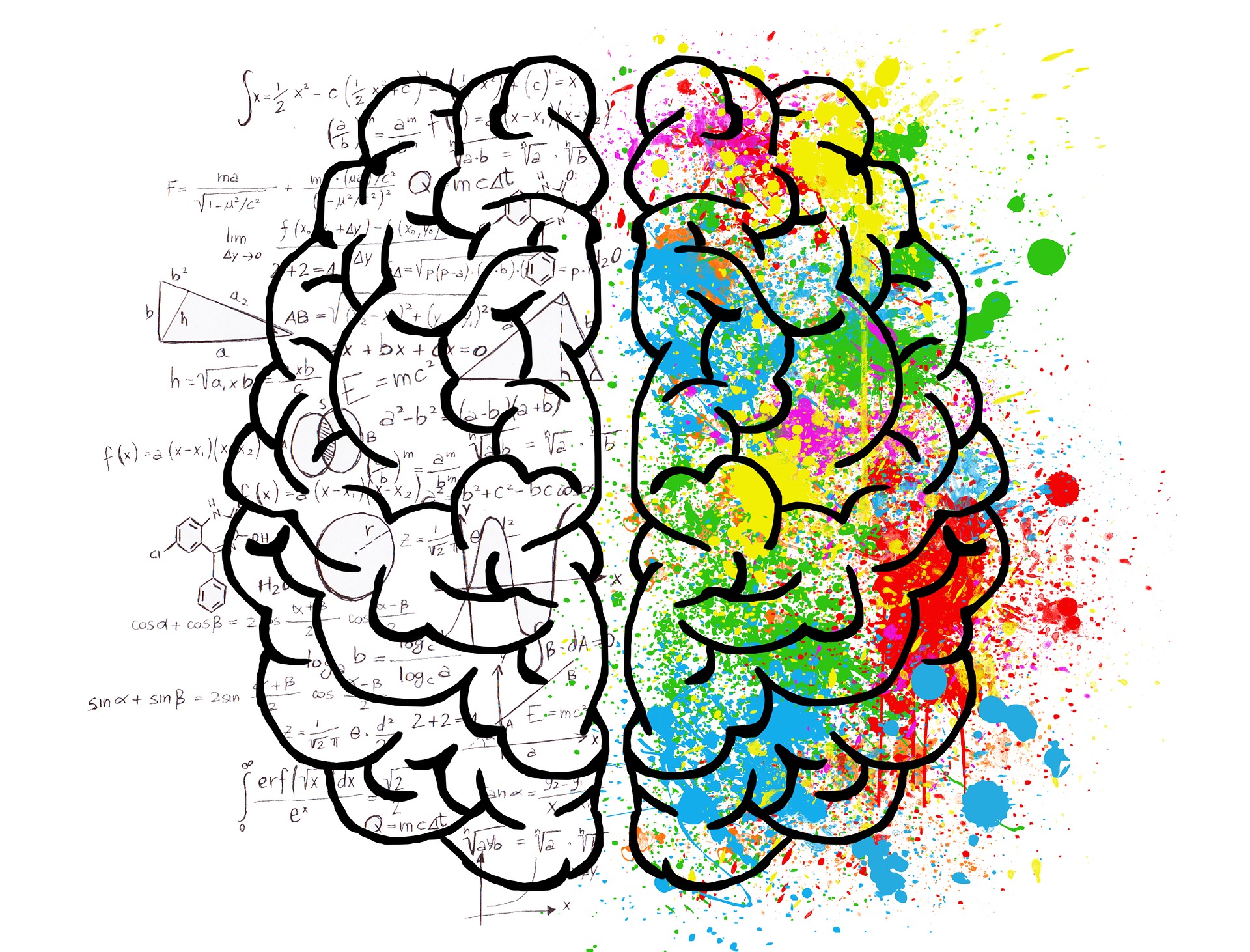Generally speaking, most people don’t think about the fact that their thoughts are chemical and even less so about how to use their thoughts to manage their brain chemistry. If your brain chemistry is optimally balanced, you will most likely feel good and function well. However, if it is unbalanced in some way, you may start to feel less like yourself. So, how do you optimise your brain chemistry?
At Human Health Hub, we believe that the best ways to optimise brain chemistry are through:
- Exercise
- Sleep
- Nutrition
- Hydration
- Mindfulness
- Learning new skills
- Staying connected to family/friends
Keep reading to learn more about the different neurotransmitters and how to optimise your brain chemistry so that you can feel your absolute best!
How To Optimise Your Brain Chemistry?
The relationship between our thoughts and brain chemistry is extremely complex and multifaceted. Some of the factors that can influence this relationship include:
- Genetics
- Environment
- Life experiences
The relationship between your mind and body is inseparable. This is because your thinking directly impacts your mental and physical well-being via your brain chemistry.
Below, we’ve outlined some of the best healthy ways to balance your brain chemistry:
Exercise Regularly
Regular exercise has been shown to have a positive impact on brain chemistry by increasing the production of neurotransmitters, such as endorphins, dopamine and serotonin. These neurotransmitters play a key role in regulating mood, motivation and attention. Aerobic exercise (jogging, biking) has consistently shown to have healthy effects on the brain. This is because it increases blood flow which promotes the delivery of oxygen and the removal of CO2 and waste products. To improve your performance and reach your unique goals, take a look at our sports specific strength training at Human Strength Hub.
Several studies have outlined the health promoting effects of aerobic exercise, including:
- Improved cognitive functioning
- Less whole brain atrophy in older adults
- Decreased depression
- Increase in energy level
- Greater sense of well-being
According to neurosurgeon Larry McCleary M.D, human beings should carry out at least 30 to 60 minutes of aerobic exercise three times a week, along with a mix of weight training, balance drills and speed/agility exercises. At Human Health Hub, our general rule is that lifestyle recommendations that make for a healthy heart also make for a healthy brain.
Sleep
Arguably one of the most important requirements for good brain health is a good night’s sleep. During sleep, the brain flushes out toxins and repairs itself, which helps to maintain the balance of neurotransmitters and other chemicals in the brain. It’s also important to experience the different states of sleep (slow wave sleep early in the night compared to rapid eye movement sleep towards the end of the night), both of which are crucial for optimising metabolic circuits for human performance and health. Research has actually shown that sleep deprivation can have a negative impact on brain chemistry, leading to mood disorders, anxiety and other cognitive impairments. We recommend that you aim for around 7 hours of high quality sleep per night.
To read more about the importance of sleep, take a look at our articles, ‘How To Sleep Your Way To Better Health’ and ‘The Science & Sensibilities of Sleep’.
Nutrition
A phrase that we often hear, and which contains a great deal of truth, is ‘you are what you absorb’. Luckily for us, the field of nutrition and our growing understanding of the long-term effects of a health promoting diet has expanded exponentially in the last 50 years. We recommend that you eat plenty of fruits and vegetables, healthy fats, lean poultry, red meat and fish. If you can, try to avoid eating processed carbohydrates such as sugar, fried food and alcohol. Eating too much highly processed food is very bad for the body and brain as it alters blood flow to the brain and impairs cognition. In fact, recent research is even linking food to disorders such as Alzheimer’s disease and depression.
To read more about nutrition, take a look at our insightful articles:
How Does Strength Training Affect Nutritional Requirements?
What Does a Functional Nutrition Coach Do?
Hydration
Maintaining good hydration goes a long way towards good physical health and brain health. Unfortunately, our society has done a great job marketing soft drinks and beverages containing sugar artificial sweeteners. A good way to identify whether you are drinking enough is to check your urine throughout the day. If it is clear in colour, you are probably drinking an adequate amount of water.
At Human Health Hub, we believe that the best way to kickstart your day is with a glass of water containing lime (lemon) and salt as it boosts energy, immunity, gut health and decreases stomach fat.
Practise Mindfulness
Another effective way to regulate your brain’s chemistry is to practise mindfulness. This involves focusing your attention on the present moment, without judgement or distraction. By practising mindfulness regularly, you can train your brain to become more aware of your thoughts and emotions. Using this awareness, you can choose to redirect your thoughts. Choose to move your thoughts away from things that don’t feel good and instead focus on things that are rewarding and produce a positive emotion. When you do this, you are proactively deciding which neurochemicals get released in your brain.
Mindfulness is also another great technique to reduce stress. The stress hormone, cortisol can kill brain cells and chronic stress can even cause memory loss. As a result, any form of stress management is good. Meditation and mindfulness has been shown to increase cerebral blood flow and activate certain parts of the brain to improve concentration, focus and mood.
Learn New Information Every Day
Interestingly, the saying ‘use it or lose it’ also applies to brain fitness. It’s important that we step out of our comfort zone from time to time. This is because learning new information improves brain functioning and cognitive reserve. In fact, research shows that individuals with more education appear to have a greater brain reserve of healthy neurons and are therefore less likely to develop diseases such as dementia. So, what are you waiting for? Create a list of topics that you would like to learn about and keep learning. From art history, Russian Literature to cooking and woodwork, anything new will facilitate brain health.
Be Purposeful & Connected
Individuals who have a rich social network and who have a clear purpose in life have been shown to have a more balanced brain chemistry. The key is to increase the frequency of positive experiences. According to clinical psychologist Bill Conklin,
‘Enjoying pleasurable activities, doing something that seems to make time stand still, spending time with loved ones, pursuing meaning in its many forms and celebrating accomplishments stimulate the activity in your left prefrontal cortex.’
Remember to make time to see your friends and family around your busy lifestyle.
How Thinking Affects Your Brain Chemistry?
The key thing to remember is that thoughts are transmitted via neurotransmitters and other neurochemicals in our brain. These neurochemicals are directly responsible for our emotions.
Here are some of the most well-known neurotransmitters:
- Dopamine – This is referred to as the ‘feel-good’ neurotransmitter because it is associated with pleasure and reward. When you think about something pleasurable, such as eating a delicious meal, your brain releases dopamine.
- Oxytocin – This neurotransmitter is sometimes referred to as the ‘love hormone’ because it is released during social bonding activities, such as hugging. This can create feelings of closeness and connection with others.
- Cortisol – As already mentioned, Cortisol is the hormone that is released by the body when you are stressed. This can be helpful in the short term if you are responding to a perceived threat but if you experience chronic stress, your body may be releasing too much cortisol. This can have very negative effects on your physical and mental health.
At Human Health Hub, we understand that thinking and brain chemistry is a two-way street. While your thoughts influence your brain chemistry, your brain chemistry also influences your thoughts. Your brain’s chemistry not only affects how you feel but also changes the physical structures of your brain and body. Research has even shown that over time, changing what you think can alter the size of certain regions of your brain. It also shows that neurochemicals released via your thinking have the power to influence physical symptoms in your body (For example, the placebo effect).
Functional Nutrition At Human Health Hub
At Human Health Hub, we understand the importance of optimising our brain chemistry so that we are able to perform at our best. Our functional nutrition consulting services focus on improving cellular functions to optimise health and wellbeing to improve both physical and mental performance.
As part of the programme, you will receive a functional nutrition plan tailored to your unique requirements. This means that we can optimise your health, performance and body composition in a way that works for your individual circumstances..
Get in touch today to find out more about our nutrition programs or book a free consultation call to find out how we can help you.





